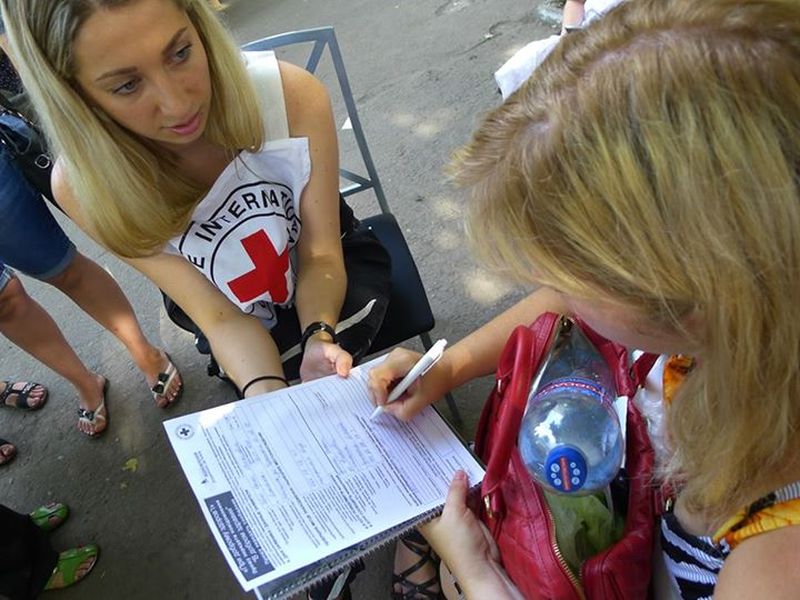Hope floats in violence-hit east of Ukraine amid the promises of a ceasefire. The ICRC, meanwhile, is striving to assess the needs of people affected by violence and is doing everything possible to boost its operations, especially in restoring family links, in Lugansk and other parts of eastern Ukraine.
Fighting in eastern Ukraine has forced many thousands to flee their homes. The supply of food, medicine and fuel is erratic and there is no electricity or telephone connection.
“Telephone lines and other communications facilities in Lugansk are not working,” said Laurent Corbaz, ICRC head of operations for Europe and Central Asia. “Clearly, people living there need help. Food and medicine are in short supply, and access to clean water is very difficult. It is urgent to improve the situation.”
ICRC delegates Marina Fakhouri and Bruno Pommier were in Lugansk from 21 to 26 August. In the video below, they describe the precarious situation in the city where intermittent shelling endangers civilian lives and damages essential infrastructure.
With phone and internet lines down in and around Lugansk, many people have lost touch with their loved ones for weeks now, and finding a way to put people back in touch is another priority for the ICRC. Along with the Ukrainian Red Cross, we’ve been collecting tracing requests and complaints of arrest from displaced people. The next step is to identify the location of their loved ones through our confidential dialogue with armed groups. We’re also looking to conduct humanitarian visits to people they’re holding.
We’re collecting short “I’m Alive” messages from people in conflict-affected areas, and delivering them to families in and outside Ukraine. However, with fighting ongoing, it’s not yet possible for us to actively search for family members. The ICRC family links website is dedicated exclusively to this service.
The ICRC also strongly urges all sides to refrain from using inherently indiscriminate weapons, i.e. those whose use makes it impossible to distinguish between civilians and civilian objects on the one hand, and military objectives on the other. It reminds the parties to the conflict that attacks must not be directed against civilians or civilian objects, such as homes, schools and medical facilities and vehicles, or against any other objects indispensable to the survival of the civilian population, such as food-storage and drinking-water installations.
Resources:
Ukraine: Lugansk population in dire need: Storify & News release
For further information, please contact:
Victoria Zotikova, ICRC Moscow, tel: +7 495 626 5426 or +7 903 545 3534
Anastasia Isyuk, ICRC Geneva, tel: +41 22 730 30 23 or +41 79 251 93 02
ICRC New Delhi


